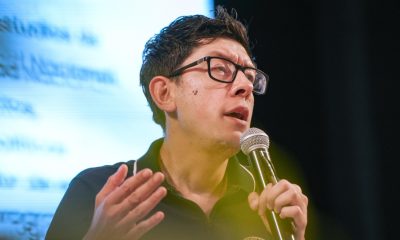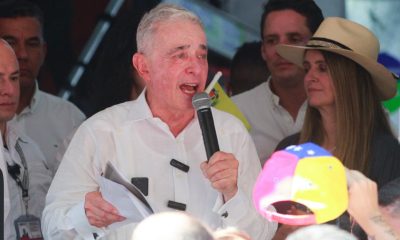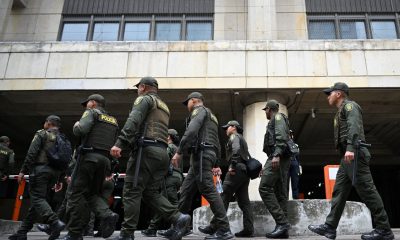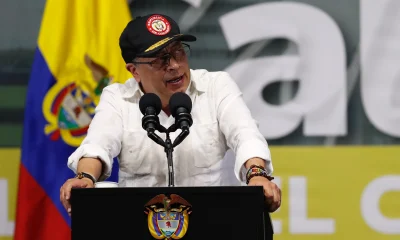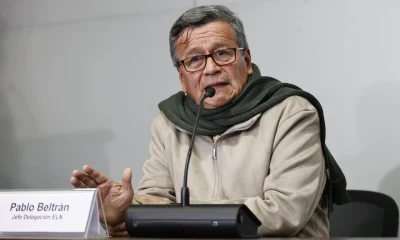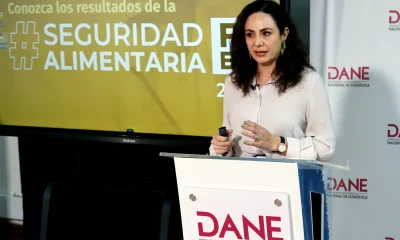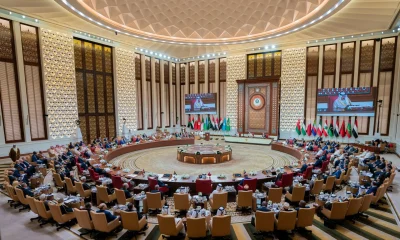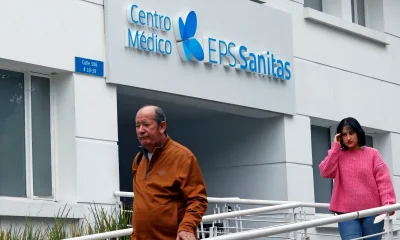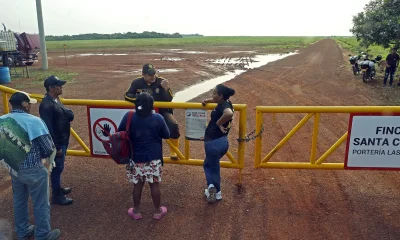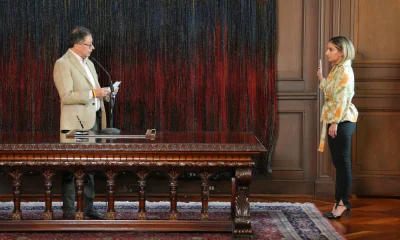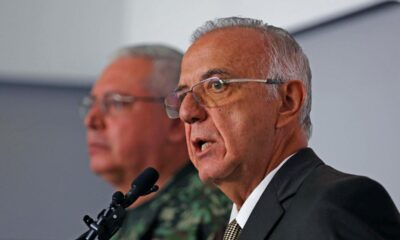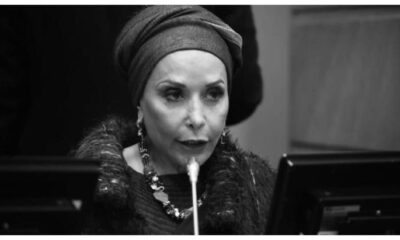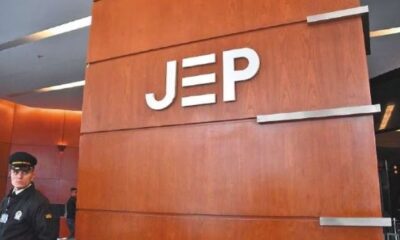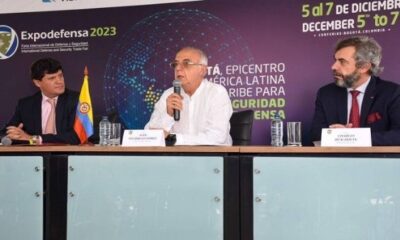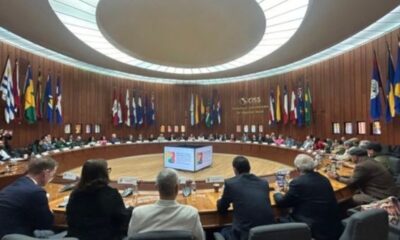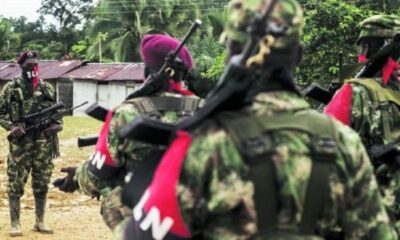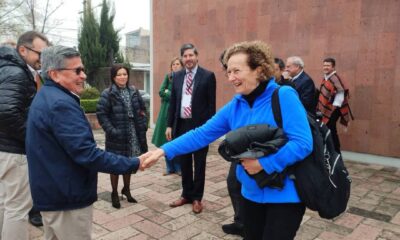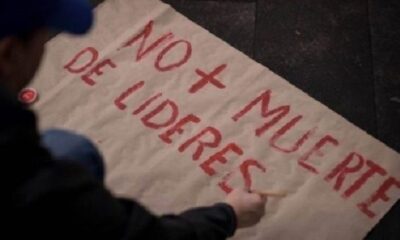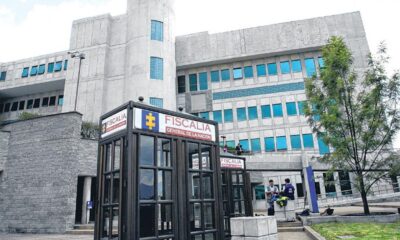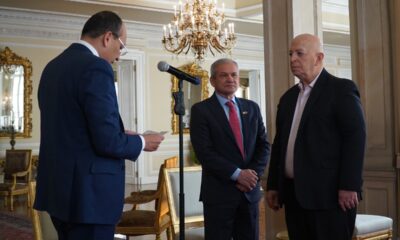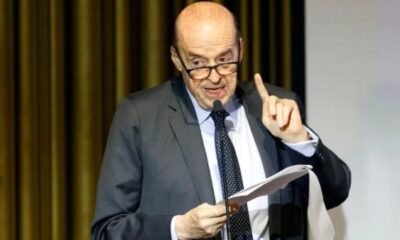International
Second cycle of peace talks between Colombian Government and ELN closes
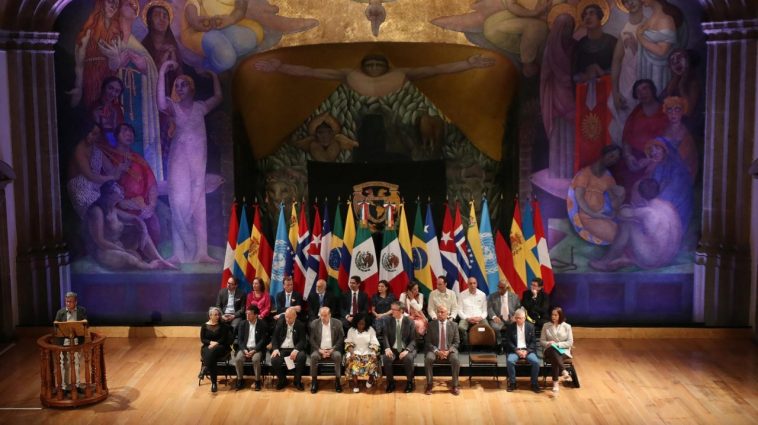
March 10 |
The delegations of the Government of Colombia and the National Liberation Army (ELN) closed this Friday the second cycle of dialogues for the search for peace, which took place in Mexico, during a ceremony in which the Colombian Vice President, Francia Márquez, participated.
The parties informed the public that they agreed on a new agenda for Peace in Colombia (Mexico Agreement), as well as agreements on the initial elements for the participation of society and, finally, on initial elements for the ceasefire between the Government and the ELN.
They then proceeded to the signing of the Mexico Agreement, a step which corresponded to the chief negotiators of the Government delegation, Otty Patiño, and the ELN, Pablo Beltrán.
After the signing of the agreement, Beltrán emphasized that the search for peace was fed by the will for change of the majorities and the youth, as evidenced during the national strike of 2021.
He pointed out that the dialogue agenda addressed between the parties is committed to the interests of the millions of victims of the armed conflict and the popular majorities. He urged everyone to seek a lasting peace and to participate in the national effort to have a country in which exile caused by political persecution and economic hardship ceases.
He expressed the ELN’s commitment to help overcome the armed conflict and contribute to the transformations of society, an effort in which he invited to empower women and listen to all victims to contribute to reconciliation.
For his part, Patiño pledged that the population, with its participation and initiative, will give the necessary rhythm to the peace dialogues.
He explained that for the third cycle of dialogues, the challenge will be to enter into more substantive issues, to build a pilot peace and apply it in some territory, to advance in the bilateral and national ceasefire, to achieve more inclusive participation and to strengthen the social rule of law, among other aspirations.
Regarding the third cycle, he recalled that it will take place in Havana and thanked Cuba for its unwavering support for peace in Colombia for several decades.
Vice-President Francia Márquez also welcomed Cuba’s gesture and said that the armed conflict has destroyed everyone and, in view of that certainty, there is no other way but to assume the will for change and total peace promoted by the Government of President Gustavo Petro.
He detailed that this implies dedicating to education, health, food, water and electricity services and to create infrastructures to improve life the substantial resources that were previously dedicated to war.
He stated that the Government welcomes this new dialogue agenda to solve the armed confrontation, to advance in implementing a humanitarian attention plan and to transform the structures that led the country to believe that the solution was through arms.
She recalled that the Government undertook an agenda of transformation and development that also seeks to preserve our big house and protect the country that future generations will receive.
She called on all Colombian women, who make up 52 percent of the population, to participate in the effort to advance towards total peace and thus prevent war, violence, pain and suffering from continuing in the social and political fabric of the country.
The Mexican Foreign Minister, Marcelo Ebrard, pointed out that the dialogues to find peace in Colombia point to hope and the future. He thanked his country for the opportunity to contribute to peace in a brotherly and dear people, united by a common cause.
International
Florida judge sets 2027 trial in Trump’s $10 billion lawsuit against BBC

A federal judge in Florida has scheduled February 2027 for the trial in the lawsuit filed by U.S. President Donald Trump against the BBC, in which he is seeking $10 billion in damages for defamation.
Trump accuses the British broadcaster of airing a misleading edit of a speech he delivered on January 6, 2021, which, he says, made it appear that he explicitly urged his supporters to attack the U.S. Capitol in Washington.
The president filed the suit in December in federal court in Florida, alleging defamation and violations of a law governing business practices when the program was broadcast ahead of the 2024 election.
Trump is seeking $5 billion in damages for each of the two claims.
Lawyers for the BBC unsuccessfully asked the court to dismiss the case, arguing that Trump had not suffered a “legally recognizable harm,” since the investigative program Panorama, which included the edited footage, aired outside the United States.
International
Head-of-state diplomacy key to guiding China–U.S. ties, Beijing says
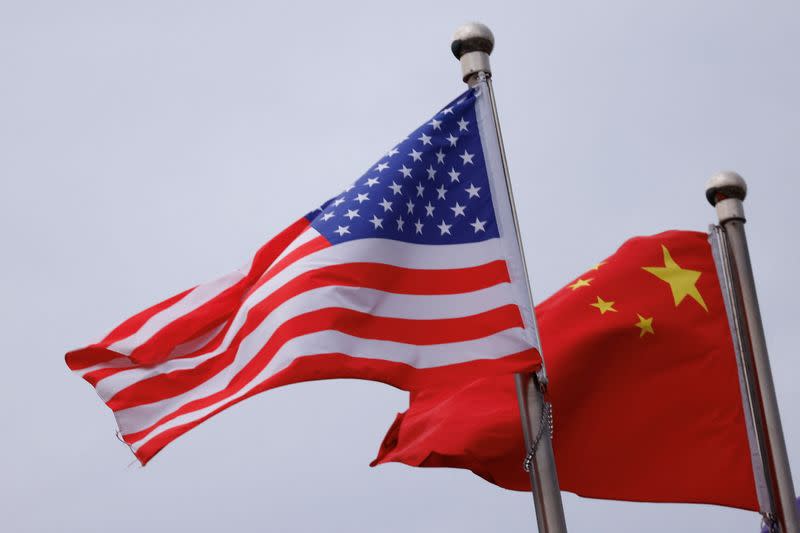
Head-of-state diplomacy plays an irreplaceable strategic guiding role in China–United States relations, Chinese Foreign Ministry spokesperson Lin Jian said on Thursday during a regular press briefing, when asked about high-level exchanges between the two sides.
Lin added that in a recent phone call, U.S. President Donald Trump once again expressed his intention to visit China in April, while Chinese President Xi Jinping reiterated his invitation.
Both sides remain in communication regarding the matter, the spokesperson said.
Lin noted that the essence of China–U.S. economic and trade ties lies in mutual benefit and win-win outcomes.
“Both parties should work together to implement the important consensus reached by the two heads of state, injecting greater certainty and stability into China–U.S. economic and trade cooperation, as well as into the global economy,” he said.
International
Trump administration to end special immigration operation in Minnesota
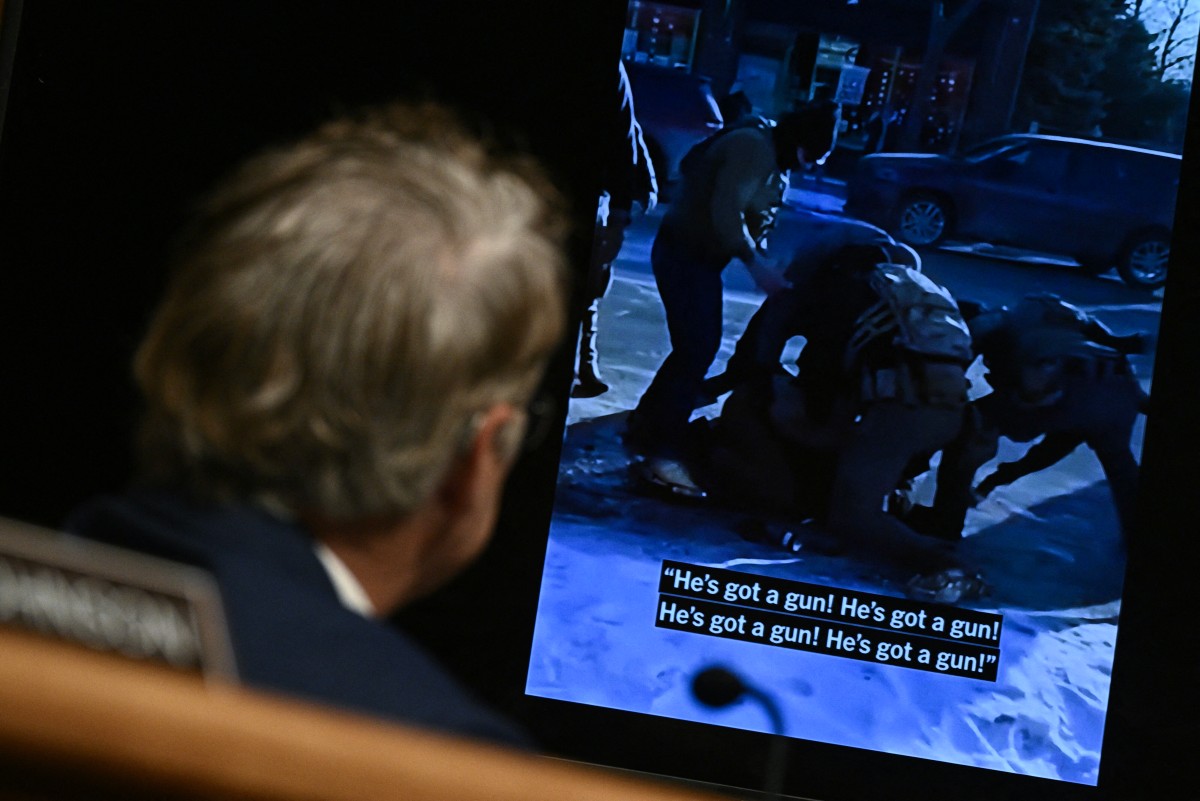
The administration of Donald Trump is bringing to a close its special operation targeting illegal immigration in the northern state of Minnesota, border czar Tom Homan announced Thursday, following weeks of unrest and the fatal shootings of two activists by federal agents.
Thousands of federal officers had been deployed to Minnesota in December to carry out large-scale raids against undocumented immigrants.
The operations triggered strong reactions from residents and advocacy groups, leading to daily confrontations and the deaths of two people who were shot by federal agents.
“I proposed, and President Trump agreed, that this special operation should end in Minnesota,” Homan said during a press conference in the state capital, Minneapolis.
“A significant drawdown began this week and will continue into next week,” he added.
Homan indicated that similar enforcement efforts could be launched in other cities.
“Next week we will redeploy the agents currently here back to their home stations or to other parts of the country where they are needed. But we will continue to enforce immigration laws,” he said.
-

 Central America4 days ago
Central America4 days agoGuatemala isolates Barrio 18 leader after attacks that killed 11 police
-

 International2 days ago
International2 days agoU.S. Health Department says CDC grants no longer match agency priorities
-

 International1 day ago
International1 day agoOver 50 Civil Groups Urge House to Impeach DHS Secretary Kristi Noem
-

 International2 days ago
International2 days agoICE Arrests Reach 379,000 Under Trump, Testimony Shows Amid Minnesota Shootings
-

 Central America1 day ago
Central America1 day agoGuatemala to Phase Out Longstanding Medical Cooperation Agreement with Cuba
-

 International2 days ago
International2 days agoDespite homicide drop, overall deadly violence remains high in Mexico: study
-

 International2 days ago
International2 days agoSheinbaum Urges Mexico to ‘Jealously’ Guard Sovereignty at Air Force Anniversary
-

 International2 days ago
International2 days agoMEPs Approve Plan That Could Fast-Track Rejection of Some Asylum Claims
-

 International2 days ago
International2 days agoJet Fuel Crisis Hits Cuba: Flights Disrupted, Air Canada Cancels Services
-

 International1 day ago
International1 day agoNew York’s New Archbishop Names Óscar Romero as His Favorite Saint
-

 International2 days ago
International2 days agoMexico Rises Slightly to 141st in Global Corruption Perceptions Index 2025
-

 International7 hours ago
International7 hours agoHead-of-state diplomacy key to guiding China–U.S. ties, Beijing says
-

 International7 hours ago
International7 hours agoTrump administration to end special immigration operation in Minnesota
-

 International7 hours ago
International7 hours agoFlorida judge sets 2027 trial in Trump’s $10 billion lawsuit against BBC
-

 International1 day ago
International1 day agoExclusive Tucson Neighborhood Shaken by Disappearance of Savannah Guthrie’s Mother
-

 International2 days ago
International2 days agoChile Unveils Latam-GPT to Give Latin America Its Own AI Model































